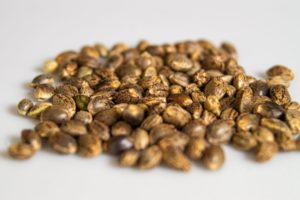Indoor cannabis growing is a rapidly growing industry, with more and more people turning to indoor growing for its many benefits, including privacy, control over the environment, and the ability to grow high-quality plants year-round. One of the most important decisions that indoor cannabis growers must make is what type of nutrients to feed their plants. Synthetic and organic nutrients are two popular options, but they offer different benefits and drawbacks. In this blog post, we’ll explore the differences between synthetic and organic nutrients and help you determine which option is right for your indoor cannabis grow.
Synthetic Nutrients
Synthetic nutrients are laboratory-created chemical compounds that are designed to provide the necessary nutrients for healthy plant growth. They are often sold in pre-mixed form, making it easy for growers to simply add them to their grow room’s water supply. Synthetic nutrients are convenient, easy to use, and often provide consistent results, making them a popular choice among indoor cannabis growers.
The biggest advantage of synthetic nutrients is their convenience. They are designed to provide all of the essential nutrients in a single formula, making it easy for growers to simply add the recommended amount of nutrient solution to their water supply. This reduces the time and effort required to make sure your plants are receiving all of the nutrients they need.
However, synthetic nutrients have some disadvantages as well. One of the biggest concerns is that they are often not fully water-soluble, which can cause buildup in your grow room’s soil and hydroponic systems. This buildup can lead to root rot, nutrient deficiencies, and other problems that can reduce your yield and quality. Synthetic nutrients can also be harsh and can damage your plants if used improperly.
Organic Nutrients
Organic nutrients are made from natural ingredients such as bone meal, kelp meal, and other organic matter. Unlike synthetic nutrients, organic nutrients are not chemically created, making them a popular choice for indoor growers who prefer a more natural approach to growing. Organic nutrients are often sold as dry powders or liquids that can be mixed into the grow room’s water supply.
The biggest advantage of organic nutrients is that they are gentle and safe for your plants. Organic nutrients are made from natural ingredients, so they are less likely to cause damage or harm to your plants if used incorrectly. They also break down over time, which reduces the risk of buildup in your grow room’s soil or hydroponic systems.
Organic nutrients also offer the benefits of improved soil health, which can lead to stronger roots, healthier plants, and better yields. However, the downside of organic nutrients is that they are not as convenient to use as synthetic nutrients, and they often require more time and effort to make sure your plants are receiving all of the essential nutrients they need.
Final Thoughts
Ultimately, the choice between synthetic and organic nutrients comes down to personal preference and the specific needs of your indoor cannabis grow. Synthetic nutrients offer convenience, consistent results, and are easy to use, but they can be harsh and can lead to buildup in your grow room’s soil or hydroponic systems. Organic nutrients are gentle and safe for your plants, but they require more time and effort to use correctly, and they can be less consistent in their results.
If you’re unsure which option is right for your indoor cannabis grow, consider starting with a small test grow and see how your plants respond to the nutrients you use. This will help you determine which option is right for you, and you can adjust your grow room’s nutrient regimen as needed.





